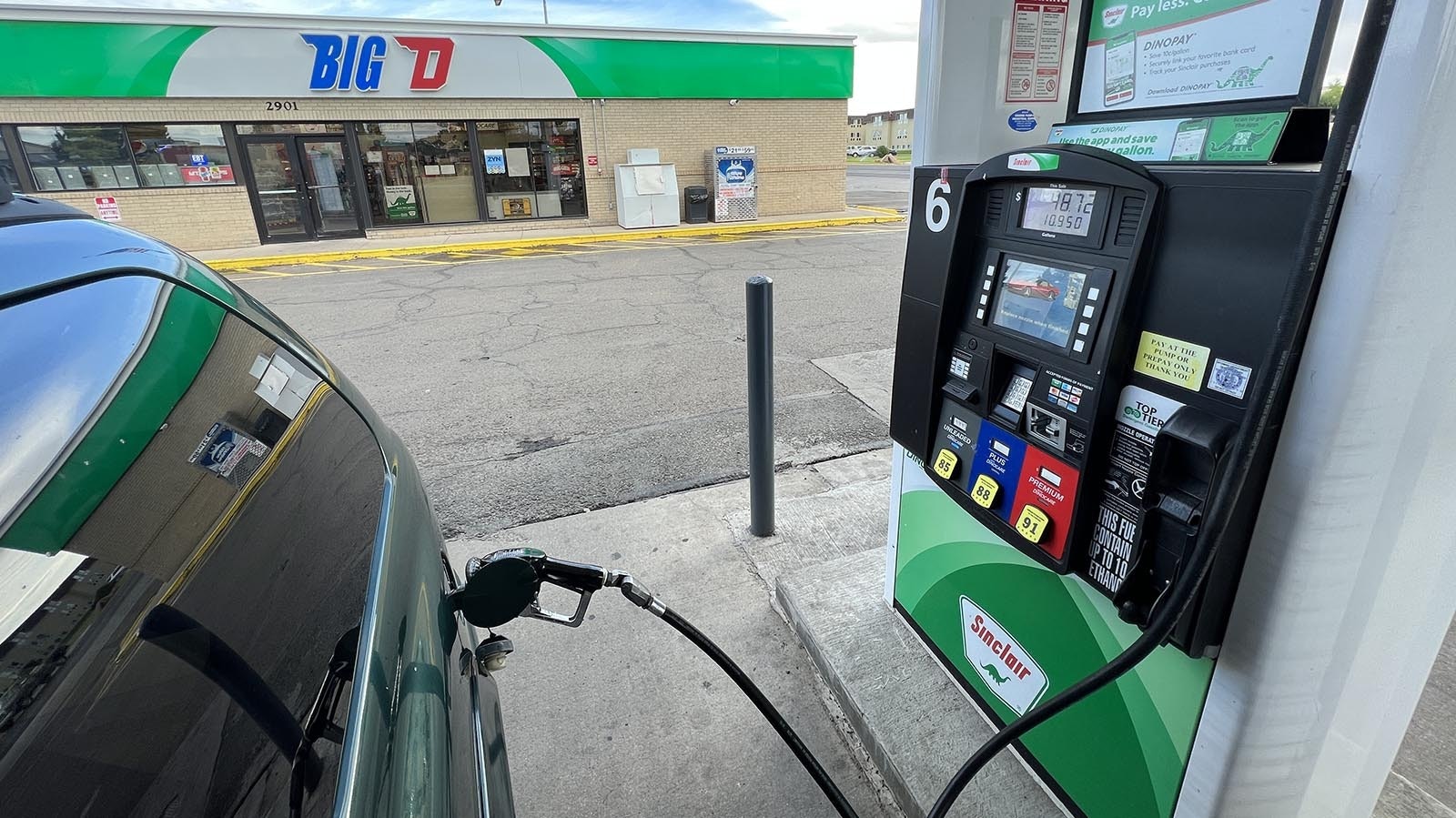University of Wyoming energy economist Robert Godby on Wednesday questioned if some of the proposals in a state working group report are the best ways to address high gas prices.
Godby told Cowboy State Daily that the panel had a challenging task, but the report’s tax proposals and support for increased refining capacity might not be the best approach to helping solve Wyoming’s economic energy crunch.
Volatile Revenues
Gov. Mark Gordon tasked the working group last summer to come up with proposals for actions the state of Wyoming could take to ease the pain at the pump for Wyoming consumers. The group released its report Wednesday.
Among the near-term recommendations the report proposes is a dynamic sales tax in which the state’s 4% sales tax would be adjusted according to Wyoming’s major commodities.
Godby pointed out that the state has four tax revenue streams, and the only one that isn’t based – at least in part – on mineral extraction is the sales tax. That creates a lot of uncertainty about state revenues.
“The sales tax revenues are … the only one you can really count on predictably,” Godby said. “I don’t think it’s a good idea to add volatility to the one revenue stream we have that is the least volatile.”
Pain At The Pump
Brenda Hensen, director of the Wyoming Department of Revenue and chair of the working group, said the members had two pieces to the challenge of gas prices. One piece is trying to reduce the price at the pump, and the other is to offset or reimburse Wyoming drivers for the high cost of fuel.
Besides the variable sales tax rate, they also propose a gas app that people would use when they buy gas. If the cost per gallon exceeds a certain amount, the state would reimburse drivers however much they paid over a threshold.
While that would ease some pressure at the pump, Hensen said, “we’re not reducing the price at the pump with those programs.”
Limited Refining Capacity
This led the group to go beyond the governor’s initial request for the group into an investigation of long-term solutions. Refining capacity is at 95% in the state, and a large portion of what is refined is renewable diesel fuel, which is shipped out of state.
“Increased crude supply would not solve the issue of higher prices, because we still need to refine it,” Hensen explained.
During the working group’s investigation, the members heard testimony from gas distributors that outlined the impacts of limited refining capacity in the state.
The distributors said their trucks often wait hours to receive product with no guaranteed availability for the time they wait. Regulations impact the carriers’ ability to adjust for the increased time when they have to travel further to secure product. And these issues are on top of labor shortages that make it hard to find qualified drivers.
Transferring Risk
To increase refining and storage capacity, the group proposes the use of bonds, which would allow companies access to operating money as state-backed bonds have lower interest rates.
The state receives lower interest rates because it can just raise taxes to pay back the bonds. Companies have a much higher risk level, and so the bonds have higher interest rates, Godby said.
In contrast, he said that “a company can’t say, ‘Well, we’re just gonna earn more profit.’”
This effectively transfers the risk of the investment to the taxpayer.
And it’s a risky investment, Godby added.
As policies seek to address climate change by discouraging fossil fuel production, it’s become harder to get the permitting necessary to build new refineries. Trying to get investors to tie up their money in a project that will take years to become operational, if ever, is not a risk most private investment is going to consider.
“They need to know that those investments which are substantial return the sort of investment that their investors expect,” Godby said.
Demand Still There
Hensen said the group considered that policy is pushing the U.S. away from fossil fuels, but people still need energy.
“we’ve heard that in some of the public testimony — the hesitancy of private sector companies to invest. But we also heard that the demand is still there,” Hensen said.
Godby said that direct payments to consumers make a lot more sense. They don’t risk taxpayer money with investments that might not pan out, and with commodity prices so high, state revenues are going to see the kind of surplus needed to support such a program.
This was the idea behind the gas app the group proposed.
In a statement on the report, Gordon said he was pleased with what the group produced.
“We have always recognized that national and global factors weigh heavily in determining the price at the pump. However, this report outlines actions Wyoming can take that can make a difference to our residents, in addition to just being able to produce more oil and gas,” the governor said.





